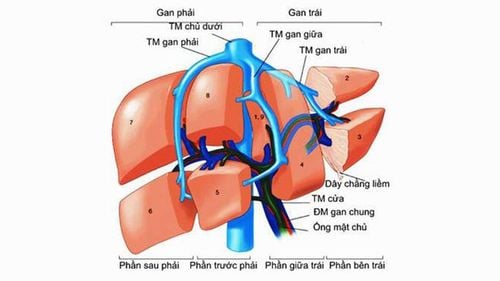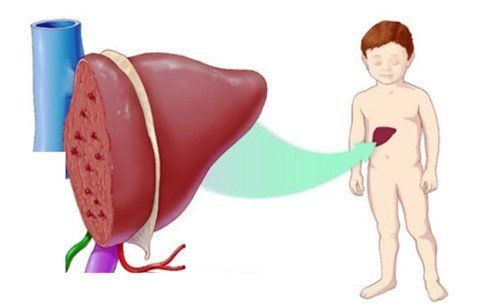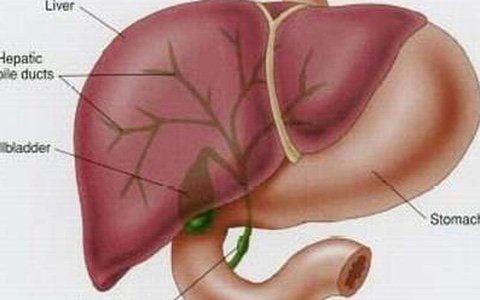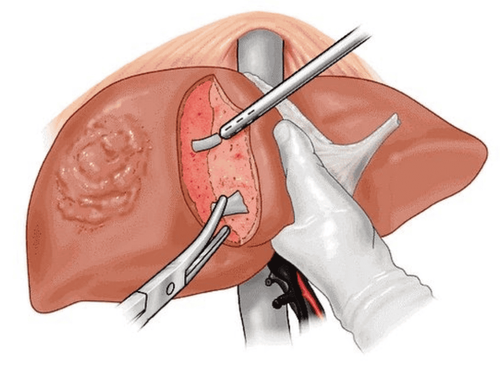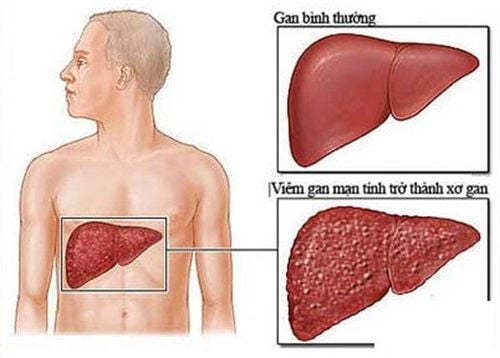This is an automatically translated article.
The article was written by Dr. Bui Thi Hang - Pediatrician - Unit of Regenerative Medicine Clinic and Educational PsychologyCharacterized by chronic biliary hepatitis in congenital biliary atrophy leading to advanced biliary cirrhosis, biliary cirrhosis causes portal hypertension, which can lead to venous bleeding and ascites. The development of splenomegaly or decreased platelet count after Kasai surgery suggests the possibility of progressive portal hypertension.
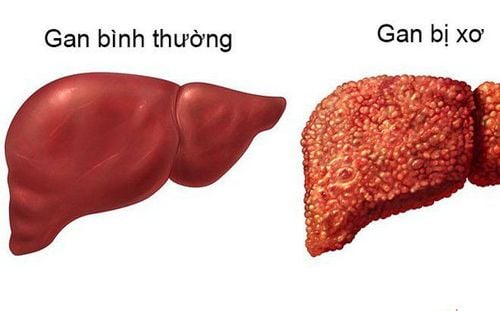
In a study of 163 North American children with congenital biliary atresia who had not received a liver transplant (mean age 9.2 years), half of the children had definite portal hypertension. Among those with portal hypertension, 53% had a history of venous bleeding, 17% had ascites, and 34% had decreased liver synthesis (prothrombin time [PT]> 15 seconds or albumin <3 g/dL). Recurrent venous bleeding and intractable ascites are indications for liver transplantation.
If portal hypertension leads to esophageal varices, this complication is usually controlled with sclerotherapy or ligation. After the first esophageal varices, sclerotherapy or ligation therapy is repeated with the ultimate goal of complete eradication of the varices.
In a study of 47 children with congenital biliary atresia who were managed endoscopically, esophageal varices were present in approximately half of the infants with a mean age of 19 months (range 4 to 165 months). ) after Kasai HPE is successful.
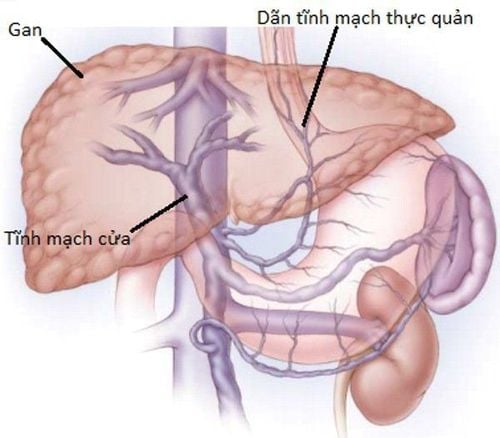
A consensus statement on the management of portal hypertension in children: primary prevention of esophageal varices is not indicated except in situations such as children without medical facilities nearby that can give first aid to the child.
If ascites becomes severe enough to affect respiratory function, it is usually treated with aspiration, followed by prolonged use of diuretics, beta-blockers, salt restriction and /or water or a combination of these interventions.
To protect your child's health, you should have surgery at reputable medical facilities. Vinmec International General Hospital is a high-quality medical facility in Vietnam with a team of highly qualified medical professionals, well-trained, domestic and foreign, and experienced.
A system of modern and advanced medical machinery, detects many difficult and dangerous diseases in a short time, supports the diagnosis and treatment of doctors most effectively. The hospital space is designed according to 5-star hotel standards, giving patients comfort, friendliness and peace of mind.
Please dial HOTLINE for more information or register for an appointment HERE. Download MyVinmec app to make appointments faster and to manage your bookings easily.
Articles refer to the source: Update





